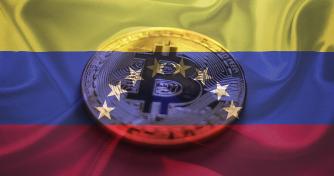Venezuela: Petro Cryptocurrency Becomes National Unit-of-Account
Photo by DavidRockDesign on Pixabay
The cryptocurrency situation in Venezuela received a push on Tuesday, Aug. 14, after President Nicolás Maduro announced that the state-issued Petro token is legally a unit-of-account in the crisis-stricken country, ABC International reports.
Maduro’s Giant Cryptocurrency Experiment
Launched in February 2018, the oil-backed cryptocurrency Petro was developed by the Venezuelan government to evade U.S. and European economic sanctions amid the deepening political crisis.
After launch, the controversial token was offered to several countries as an option for purchasing Venezuela oil at a discount, a move which all parties understandably denied.
Now, the country is pegging the Petro as a monetary unit and even aims to pay salaries and provide pensions with the cryptocurrency.
First announced on a televised interview with a state-run news channel, Maduro stated national oil company PDVSA will begin to use Petro as an “official” unit-of-account. In addition, Venezuelans will be introduced to a new salary system that partly incentivizes talent with cryptocurrencies, alongside changing the tariffs for several products linked to the Petro.
Maduro told viewers:
“As of next Monday, Venezuela will have a second accounting unit based on the price, the value of the Petro. It will be a second accounting unit of the Republic and will begin operations as a mandatory accounting unit of our PDVSA oil industry.”
Making Economic Inroads
The president believes Petro could mark a “substantial improvement” in Venezuela economic woes, although the reasons for this proclamation are not readily clear. Maduro also promised better wages and the reappearing of the “maximum retail price” system, the disappearance of which caused the Venezuelan crisis in the first place.
As it stands, Venezuela will now have two distinct state-owned currencies–the sovereign bolivar and the cryptocurrency Petro–after Aug. 20.
Attempting to evade the crisis, Maduro noted that five zeros would be “taken away” from the bolivar to bring stability to the region and a hopeful monetary conversion in the future. The country’s private and national banks have already received the new banknotes, the president added.
As per reports, the Venezuelan Central Bank (BCV) will peg the bolivar to Petro prices, the latter of which shall be determined by international currencies. The step marks the world’s first instance of a national currency pegged to a cryptocurrency.
At the time of ICO, Petro was marketed with 82.4 million units of its tokens and raised $734 million on the first day of pre-sale. The cryptocurrency was introduced after the prices of goods rose multifold and inflation touched a staggering 1,000,000 percent in 2018.
Petro’s Supposed Benefits
Despite Petro’s controversial beginnings, the currency does hold relevance to Venezuela’s economic crisis if Maduro and his government proceed truthfully.
The Petro whitepaper claims to be fully compliant with Venezuelan legislation, despite the country’s opposite claiming the contrary.
Furthermore, citizens using Petro will be liable to pay 10 percent less tax than their fiat-welding peers, and the discounted prices are said to propagate into other payment systems in the future.
Venezuela is also set to be benefitted from export trade as the Petro is easily converted into U.S. dollars and the bolivar. Although this point raises additional concerns about money laundering if transactions are entirely conducted in cash.
It remains to be seen if this experiment marks the advent of using cryptocurrencies in an administrative framework or adds to the list of criticisms the burgeoning asset class faces.























































